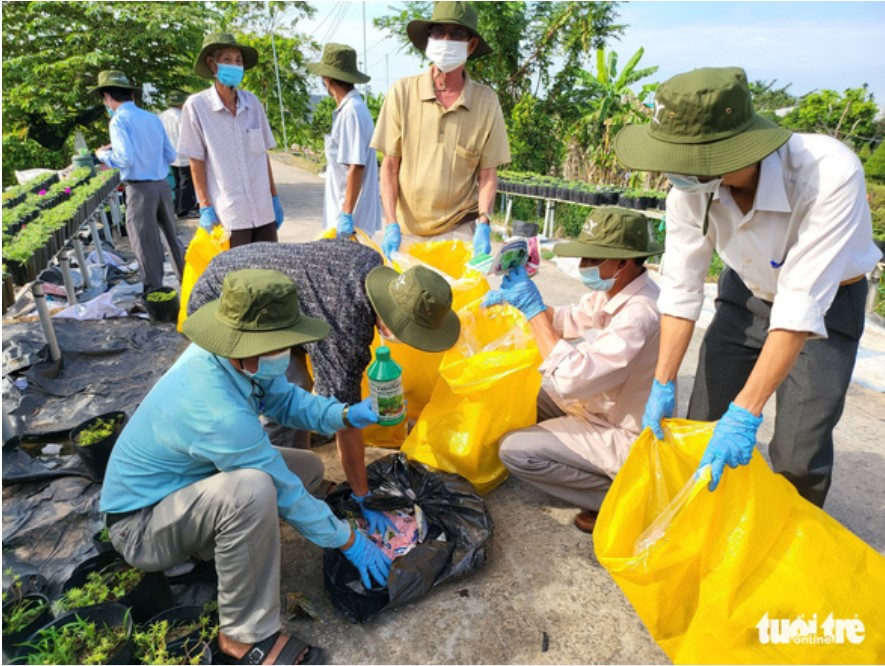In Sa Dec City, Dong Thap Province, southern Vietnam, farmers were offered the chance to participate in a program, collecting empty pesticide packaging and exchanging it for necessities.
The program, which included information and awareness activities, was launched with the aim of educating local farmers on the responsible use of pesticides.
Under the program, farmers were encouraged to collect empty pesticide packaging after use and drop it off at the collection center.
The program was jointly implemented by the Plant Protection Department under the Ministry of Agriculture and Rural Development, the Department of Agriculture and Rural Development of Dong Thap Province, and CropLife International, an association based in Brussels, Belgium, which promotes agricultural technologies such as pesticides and plant biotechnology.
According to Le Van Thiet, deputy director of the Plant Protection Department, the education program is designed to last five years.
In the first year, 1,600 farmers participated in 24 different actions, which included collecting packaging, pesticide bottles, and pesticide residues in canals and channels in the field.
In the end, they collected about 16 tons of waste.
"The locals took the collected waste to a certain warehouse where they could exchange empty pesticide packaging for necessary commodities," Thiet said.
"The Sa Dec City Agricultural Services Center will have the collected waste removed as soon as possible."
"We used to throw away empty pesticide packaging after use," said Nguyen Trong Tri, a farmer who specializes in planting ornamental plants in Tan Khanh Dong Commune, Sa Dec City.
"However, now we know the dangerous impact this habit can have on the environment and public health.
“We are also aware of the safety zone of agricultural production to meet quality standards for the domestic market and export.
"Therefore, our farmers have set up a 20-square-meter storage room for such waste, where they can bring the hazardous waste for discarding.”
In the near future, the Plant Protection Department plans to extend the model to the rice and ornamental plant fields.
The area covers a total of about 300 hectares and includes fields in Lap Vo District as well as Sa Dec.
According to the Plant Protection Department, Vietnam imports between 70,000 tons and more than 160,000 tons of pesticide products each year.
Pesticide packaging is estimated to account for 10 percent of the total weight of products, or thousands of tons per year.
The total volume of chemical fertilizers used in Vietnam annually averages 2.4 million tons, resulting in 240 tons of packaging being released into the environment.
The uncontrolled disposal of such packaging in the fields has led to pollution of agricultural production areas.
Like us on Facebook or follow us on Twitter to get the latest news about Vietnam!




















































